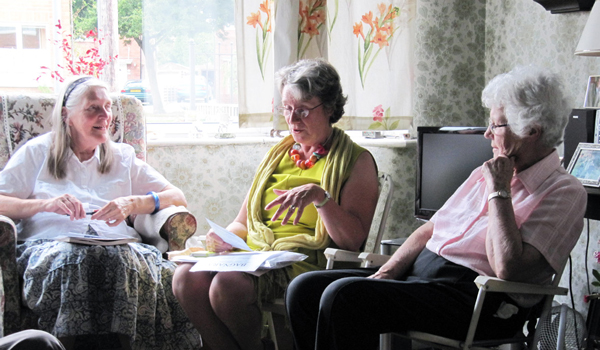Residents' committees
29/08/2017

Residents’ committees are a common feature of residential land lease communities and they have an important role. They can be a voice for residents, a source of information and support and the conduit between the operator and residents of the community. Many committees carry out a number of functions and some have sub-committees for particular purposes, for example to organise social activities. The Residential (Land Lease) Communities Act (the Act) sets the rules around residents’ committees.
Establishing a committee
It is not compulsory to have a residents’ committee in a community and the decision to have one must be made by residents of the community. To establish a committee residents from at least five different sites need to call a meeting and invite all residents of the community, including tenants. At this meeting a vote must be taken and if a majority of those residents who are present vote in favour a committee can be formed.
Membership
The number of members a committee should have is not prescribed in the Act. The size of committees varies according to the size of the community and the level of interest from residents. Communities should aim to have a committee that is big enough to do the work but not so large that it is impossible to get everyone together or make decisions. It is good idea to have an odd number of members to avoid votes being tied.
Committees are usually made up of office holders and ordinary members. The most common offices are chairperson and secretary but some have a president rather than a chairperson and some have vice presidents who can step in when the president is not available. It is up to the committee to determine which offices to have.
Residents of the community elect committee members. Once again, a meeting must be called and all residents invited. Committee members must be residents of the community and be at least 18 years old. They are elected by a majority of residents at the meeting. The term of office holders must not exceed one year but they can be re-elected (usually an unlimited number of times). They can also be removed from office at any time by resolution of the committee.
The operator of the community or a close associate of theirs cannot be a member of the residents committee, even if they are a community resident. A close associate of the operator is a partner or relative, employee or agent (of the operator or of a company of which the operator is a director).
Procedures
Residents’ committees can determine their own procedures but they function best when these procedures are written. This not only creates transparency, it provides committee members with guidance. Committees can write their own procedures, rules or constitution or adopt one that has already been created which can save a lot of work. NSW Fair Trading publishes model rules for residents committees and these are a good place to start.
Dealing with problems
At the Tenant’s Union we do get positive feedback about residents’ committees but most often we hear from residents who are unhappy about the committee in their community. Common complaints are that the committee does the operators bidding rather than representing the residents, that the committee has not been properly elected or that the committee is secretive.
There isn’t a straightforward answer to these problems but there are things residents can do when a committee is not operating in the best interests of the residents of the community. The first thing to consider is whether mediation would help to resolve the issues. An impartial mediator may assist the parties to come to an agreement and free services are available from Community Justice Centres. See cjc.justice.nsw.gov.au or call 1800 990 777.
If mediation is not the answer then a new committee may be. If the members of the committee are not representing residents then other residents need to put themselves forward for election. There is no point complaining about how a committee is operating if you are not prepared to do something to improve it.
If the committee meets in secret and no-one knows what it is doing then it is questionable whether it is even a residents committee. In this situation those residents who want a committee should consider setting up a new one. If the new committee follows the process to establish a committee and elect members then it is likely that this would be the legitimate committee rather than the one that meets in secret.
Working together
It is important to remember that residents committees are supposed to represent the interests of residents. A good committee will consult with residents and take their views on board. A good committee member can see perspectives and embrace ideas other than their own. A good residents committee can help create a harmonious community and who doesn’t want that?
